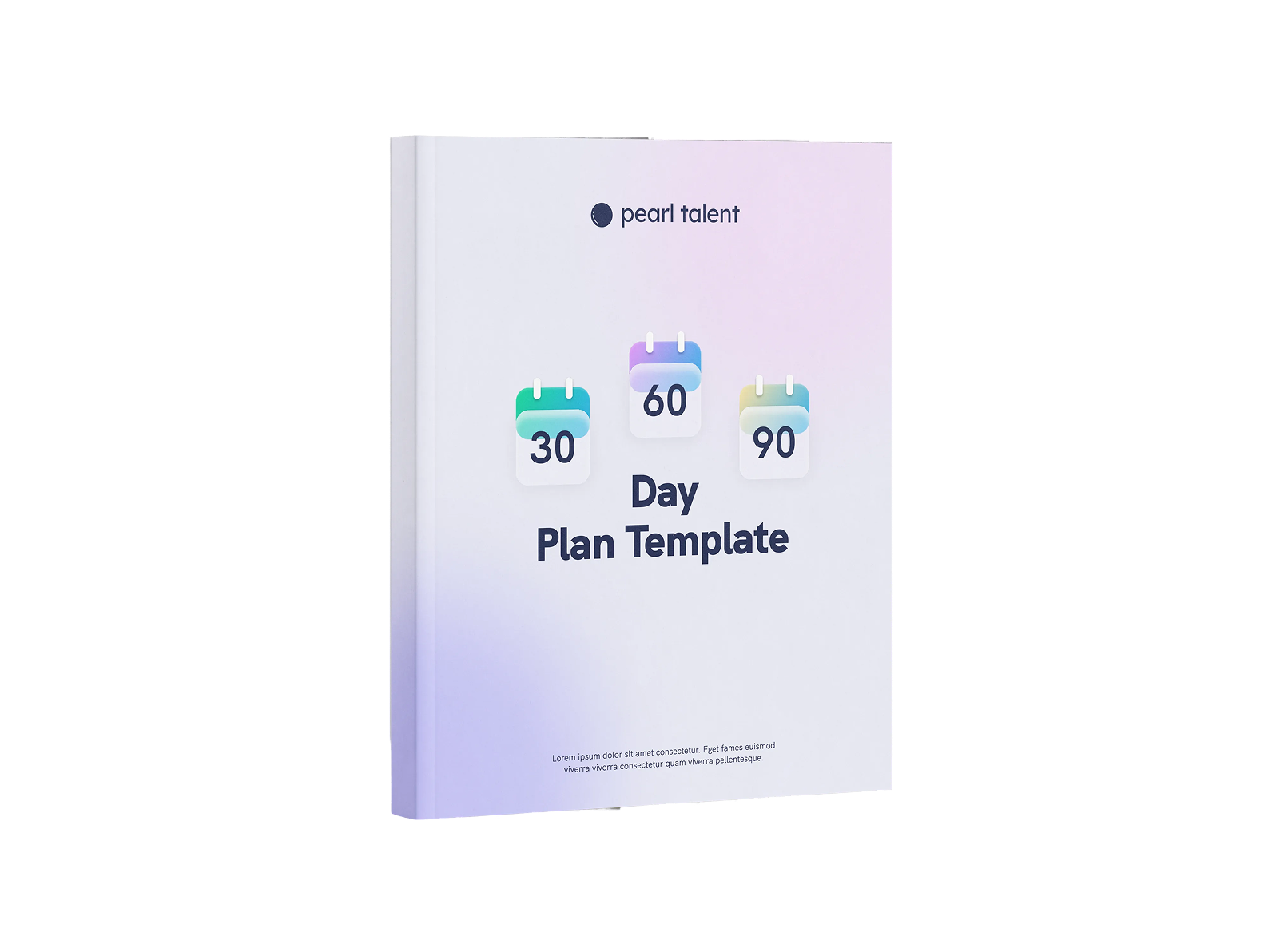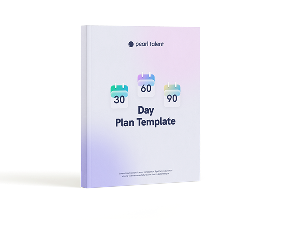Catena is now Pearl Talent! Same mission, new name.
The current job market is volatile and competitive, with talented professionals facing longer hiring processes, multiple interview rounds, and increasingly selective employers. If and when you make it to the interview stage during your job search process, you'll of course want to prepare answers relevant to your experience, problem-solving skills, teamwork, and technical expertise. But what is often overlooked, and can set you apart from other interviewees, is preparing thoughtful, strategic questions to ask HR during your interview.
While most candidates focus solely on answering questions correctly, the most strategic, and often most successful, job seekers understand that interviews are two-way conversations. The questions you ask reveal as much about your potential value as an employee as your responses to their inquiries. In today's market, where companies are looking for candidates who can hit the ground running and contribute immediately, demonstrating strategic thinking through your questions to HR interviewers can be the difference between landing the offer and being ghosted.
At Pearl Talent, we've seen thousands of successful placements, and one pattern consistently emerges: candidates who prepare insightful questions to ask HR during interviews are the ones who get hired. They're also the ones who end up in roles where they thrive long-term because they've done their due diligence upfront.
Why Smart Candidates Always Come Prepared with Questions
When you ask thoughtful questions to the HR team during your interview, you demonstrate that you're not desperately applying to every opening you can find. Instead, you're showing that you've done your research and are genuinely interested in this specific role at this particular company. HR professionals can immediately distinguish between candidates who want a job and those who want this job.
The best candidates approach interviews with confidence, knowing their worth in the marketplace. For example, instead of simply asking "What does this job entail ?", a strategic candidate might ask "Can you describe important projects that you're working on now, and how this role will plug in?” Or rather than "When can I start?", they ask "What does success look like in the first 90 days in this role?”
These nuanced questions signal that you have options and standards for prospective employers. A candidate who asks "What's your approach to work-life balance?" versus someone who asks "I noticed your Glassdoor reviews mention long hours—how has leadership addressed employee feedback about workload?" demonstrates they've done their research and aren't desperate for any opportunity. This positions you as a valuable asset rather than someone who will accept any offer that comes their way.
The questions you ask provide a window into how you think, prepare, and approach new situations. HR professionals are constantly evaluating whether candidates can think strategically, anticipate challenges, and contribute to the bigger picture. Your questions become a real-time demonstration of these critical workplace skills.
20 Strategic Questions to Ask HR During an Interview
Here is a list of 20 strategic questions broken out by category that you should think about asking in your new interview:
Role Clarity and Expectations

1. What does the day-to-day work look like in this role?
This question helps you understand the actual responsibilities beyond the job description and shows you're thinking practically about how you'll spend your time in this role. Are there lots of meetings? Do projects vary year round or is it routine? Questions like this show that it is important to you to understand the fine details of this potential role.
2. Can you tell me more about the team I will be working with?
Understanding team dynamics and personalities helps you assess cultural fit while demonstrating your collaborative and team-first mindset.
3. What are the biggest obstacles that prevent people from succeeding in this position?
This reveals potential red flags of the management team, while showing you're proactive about identifying and overcoming challenges.
4. How will my performance be evaluated?
Understanding success metrics upfront shows you're results-oriented and want to exceed expectations from day one, and ensures that you are aware of expectations as soon as you start.
5. What does success look like in this role after the first 90 days?
This demonstrates your focus on making an immediate impact and your understanding that early wins are crucial.
6. Why is this position open?
Whether it's growth, promotion, or turnover, this answer provides crucial context about the role's history and future prospects. If the role is new, this can give indication that the company is expanding and has a budget to bring on new people and resources in the particular department you are applying for.
Company Culture

7. How does the company reward employees for achieving their goals?
This goes beyond salary to understand how the company truly values and recognizes high performance—whether through financial incentives, bonuses, public recognition, or career advancement opportunities, it reveals how this employer celebrates employees who deliver needle-moving results. If they don’t have a solid answer for this question, that may be a potential red flag depending on your priorities and expectations for a future employer.
8. What's an example of how employee feedback has actually changed something here?
This reveals whether leadership genuinely listens to employees or if feedback processes are merely performative. Hopefully they present concrete examples, such as “Based on employee surveys, we shifted to flexible PTO in Q4 of last year,” rather than vague responses.
9. How does the company support employees during busy seasons or high-stress periods?
This uncovers the company's true commitment to employee well-being when it matters most. Genuine support might include bringing in temporary employees, offering mental health resources, or being flexible with deadlines. Poor support may sound like “we expect everyone to step up and work extra hours.”
10. What does "work-life balance" actually mean in practice at this company?
Since every company claims to offer work-life balance, this question seeks specific, actionable examples. Strong answers include no-meeting Fridays in the summer or encouraging all employees to silence their messaging systems after 5pm. Be wary of responses like “We’re all family here,” as that sometimes indicates a lack of work-life boundaries.
11. How are conflicts typically resolved within teams?
This reveals the company's approach to managing interpersonal challenges and whether they have healthy conflict resolution processes. It’s natural for conflict to arise between team members or with managers, so look for responses that include mediation, escalation paths, or team training solutions.
12. What does the company do to promote diversity and inclusion?
This goes beyond policy statements to understand actual initiatives and their impact on daily operations. Look for specific programs like mentorship networks, diverse hiring panels, or resource groups rather than generic statements with buzzwords.
13. How would you describe the work environment of this company?
This open-ended question often reveals authentic insights about company culture that scripted responses might miss.
Career Development and Growth

14. How does the company approach employee development and training?
This shows your commitment to continuous learning and growth within the organization. This may look like budget for continuing education, tuition reimbursement programs, or departmental training retreats.
15. What are the opportunities for career advancement within the company?
Understanding growth paths demonstrates your long-term thinking and ambition. Look for specific examples like "We have a clear progression from analyst to senior analyst to team lead, and 70% of our managers started in entry-level roles" rather than vague promises like "there are lots of opportunities for the right people."
16. Can you share an example of someone who's grown their career here recently?
Similar to the previous question, concrete examples provide evidence that advancement opportunities are real within the company. A green flag response may be providing you with the contact information of a potential future team member who recently received a promotion or having you next round interviewer talk you through what this may look like in your particular role.
17. How does the company identify and develop high-potential employees?
This reveals whether there are clear pathways for ambitious employees to accelerate their careers—look for structured answers like "We have a formal mentorship program and quarterly talent reviews" rather than unclear responses like "managers just keep an eye out for good people."
Questions that Separate Good Candidates from Great Ones

18. How has this role evolved over the past year, and where do you see it heading?
This demonstrates your strategic thinking about how roles adapt to changing business needs. Strong answers show growth and evolution like "We've added data analysis responsibilities as we've become more metrics-driven" while concerning responses suggest stagnation: "It's pretty much the same as it's always been."
19. What would make someone absolutely crush it in this position?
This shows you're not just aiming to meet expectations, but to exceed them significantly.
20. Is there anything about my background that makes you hesitant about my fit for this role?
This bold question demonstrates confidence and gives you a chance to address concerns directly. Be prepared to speak to any employment gaps or lack of experience for a particular tool and show that you have the right attitude and learning mindset to take on new challenges outside of your previous experience.
Your questions reveal whether you're thinking like an employee or like a business partner, and that distinction matters more than you think. HR professionals are looking for candidates who understand that every role exists to solve business problems and create value. When you ask questions that demonstrate this understanding, you immediately position yourself as someone who can contribute strategically, not just complete tasks.
Preparing the best questions to ask HR during an interview shows that you're thinking beyond your immediate responsibilities to consider how your role fits into larger organizational goals. This type of strategic thinking is what separates candidates who get offers from those who don't, and employees who advance quickly from those who plateau.
Other Interview Tips
Beyond knowing what questions to ask, how you ask them matters just as much. The delivery, timing, and approach you take can significantly impact how your questions are received and the quality of responses you get. Here are key strategies that experienced HR professionals notice and appreciate:
Quality over Quantity
You will have limited time, likely only 5 to 10 minutes, so choose wisely. Ask the questions that are most important to you but also strategic in showing how you can better serve their team. It's better to ask three thoughtful questions and have meaningful conversations than to rapid-fire through a checklist.
Strategic Focus
Every question should serve a dual purpose: gathering information you need to make a decision and demonstrating your value as a candidate. The questions you ask HR interviewers should show that you think strategically about business challenges and your role in solving them.
Honest Edge
Don't be afraid to ask direct questions about challenges, turnover, or concerns about your background. This honesty signals confidence and maturity, qualities that HR professionals value highly. Green flags include transparent responses that acknowledge real challenges while explaining how they're being addressed. "We did have turnover issues last year, but we've since restructured compensation and improved our onboarding process" or "That's a fair concern about your industry experience; here's how we'd support your transition,” are examples of strong responses.
Red flags are defensive reactions like "We don't really have problems here," deflecting blame with "Our last hire just wasn't a cultural fit," or reluctance to discuss obvious issues with vague responses like "Every company has challenges."
Business Partner Mindset
Frame your questions from the perspective of someone who wants to contribute to the company's success, not just collect a paycheck. This mindset shift is immediately apparent to experienced HR professionals and significantly impacts their perception of your potential value.
Final Thoughts
The interview process can feel overwhelming, especially in today's competitive market. Between preparing for technical questions, researching the company, and managing interview nerves, it's easy to overlook the importance of asking strategic questions. But as we've seen through thousands of successful placements at Pearl Talent, the candidates who approach interviews as strategic conversations rather than one-sided evaluations are the ones who consistently land the best opportunities.
We're here to help you nail your interview and land the role that's perfect for your career goals. At Pearl Talent, we understand that finding the right opportunity isn't just about having the right skills, it's about presenting yourself effectively and asking the right questions to ensure mutual fit.
Our platform goes beyond simple job matching. We provide comprehensive interview preparation that includes coaching on how to present yourself effectively for specific roles and industries. We work with you to develop compelling narratives around your experience and help you prepare thoughtful questions that demonstrate your strategic thinking.
When you use our platform, you have access to training and mentorship programs designed by HR professionals and industry experts. These resources help you understand what hiring managers are really looking for and how to position yourself as the ideal candidate.
Why Pearl Talent Makes the Difference
Two Weeks to Hire: Our streamlined process typically gets candidates from application to offer in just two weeks, reducing the stress and uncertainty of prolonged job searches.
Competitive Pay: We focus on securing compensation packages that reflect your true market value, not just what you're willing to accept. Candidates enjoy competitive salaries and engage in structured learning and development programs.
Real Connections: We build genuine relationships with both candidates and employers, ensuring better long-term matches and career satisfaction.
The right questions to ask an HR manager can transform your interview from a stressful event into a productive conversation about mutual success. When you're prepared with strategic questions that demonstrate your value while gathering the information you need, you approach interviews with confidence and purpose.
Remember, the companies worth working for want employees who ask smart questions. They're looking for team members who think strategically, communicate effectively, and contribute to the organization's success from day one. By preparing thoughtful interview questions to ask an HR manager during your interview, you're not just improving your chances of getting hired, but setting yourself up for long-term career success.
Ready to transform your interview performance and land your ideal role? Pearl Talent is here to help you navigate today's competitive job market with confidence and strategic insight.
Frequently Asked Questions
Originally Published
August 8, 2025




.svg)


















